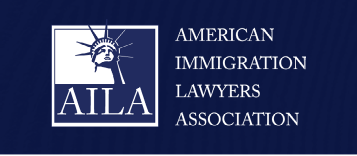DHS Previews Federal Register Notice Extending and Separately Redesignating Venezuela for Temporary Protected Status

Release Date
09/29/2023
News release originally published by the Department of Homeland Security.
Redesignation Allows Additional Eligible Venezuelan Nationals Who Arrived in the U.S. on or Before July 31, 2023 to Apply for TPS and Employment Authorization Documents
Venezuelan Nationals Who Enter After July 31, 2023 are not Eligible for TPS. Those Who Do Not Enter the U.S. via Lawful Pathways Will be Subject to Enforcement Consequences
WASHINGTON – Today, the Department of Homeland Security is previewing a Federal Register notice for an 18-month extension of Venezuela’s 2021 Temporary Protected Status (TPS) designation and a separate redesignation of Venezuela for TPS. The notice explains how to register for TPS under Venezuela’s redesignation and how to re-register for the extension. Applicants for TPS are eligible to apply for an Employment Authorization Document (EAD) during the duration of the TPS designation.
Secretary of Homeland Security Alejandro N. Mayorkas announced on September 20, 2023 the extension and redesignation of Venezuela for TPS for 18 months due to extraordinary and temporary conditions in Venezuela that prevent individuals from safely returning.
Individuals may be eligible if they have continuously resided in the United States on or before July 31, 2023, and been continuously physically present in the United States on or before October 3, 2023. The redesignation of Venezuela for TPS (Venezuela 2023) will allow an estimated 472,000 additional Venezuelan nationals (or individuals having no nationality who last habitually resided in Venezuela) to file an initial TPS application.
Venezuelan nationals who arrived in the United States after July 31, 2023, are not eligible for TPS. Those who do not enter through one of the many lawful pathways will be subject to enforcement consequences. Since May 12, we have removed or returned over 253,000 individuals to 152 countries, including to Mexico. DHS has removed or returned more family members in the last 4 months than in any previous full fiscal year.
Under the new redesignation of Venezuela (Venezuela 2023), eligible individuals who do not have TPS may submit an initial Form I-821, Application for Temporary Protected Status, during the initial registration period that runs from October 3, 2023 through April 2, 2025. Applicants can apply for a TPS-related EAD by submitting a completed Form I-765, Application for Employment Authorization, with their Form I-821, or separately later. Applicants may also submit Form I-765 online.
The extension of TPS for Venezuelans who are already registered (Venezuela 2021) runs from March 11, 2024 through September 10, 2025 and allows approximately 243,000 current beneficiaries to retain TPS through September 10, 2025, if they re-register and continue to meet TPS eligibility requirements. Re-registration is limited to beneficiaries of TPS under Venezuela 2021. Current beneficiaries under TPS for Venezuela must re-register in a timely manner during the 60-day re-registration period from January 10, 2024, through March 10, 2024, to ensure they keep their TPS and work authorization. DHS recognizes that not all re-registrants may receive a new EAD before their current EAD expires and is automatically extending through March 10, 2025, the validity of certain EADs previously issued under Venezuela 2021.
U.S. Citizenship and Immigration Services (USCIS) will continue to process pending applications filed under Venezuela 2021. Both initial applicants and re-registering current beneficiaries who have a pending Form I-821 or Form I-765 as of October 3, 2023 do not need to file either application again. If USCIS approves an individual’s pending Form I-821 re-registration application, USCIS will grant them TPS through September 10, 2025. Similarly, if USCIS approves a pending TPS-related Form I-765, USCIS will issue the individual a new EAD that will be valid through the same date.
The Federal Register notice explains the eligibility criteria, timelines, and procedures necessary for current beneficiaries to re-register and renew EADs under Venezuela 2021, and for new applicants to submit an initial application under the redesignation and apply for an EAD under Venezuela 2023.
For more information on USCIS and its programs, please visit uscis.gov or follow us on Twitter, Instagram, YouTube, Facebook and LinkedIn.
Last Reviewed/Updated:
09/29/2023













